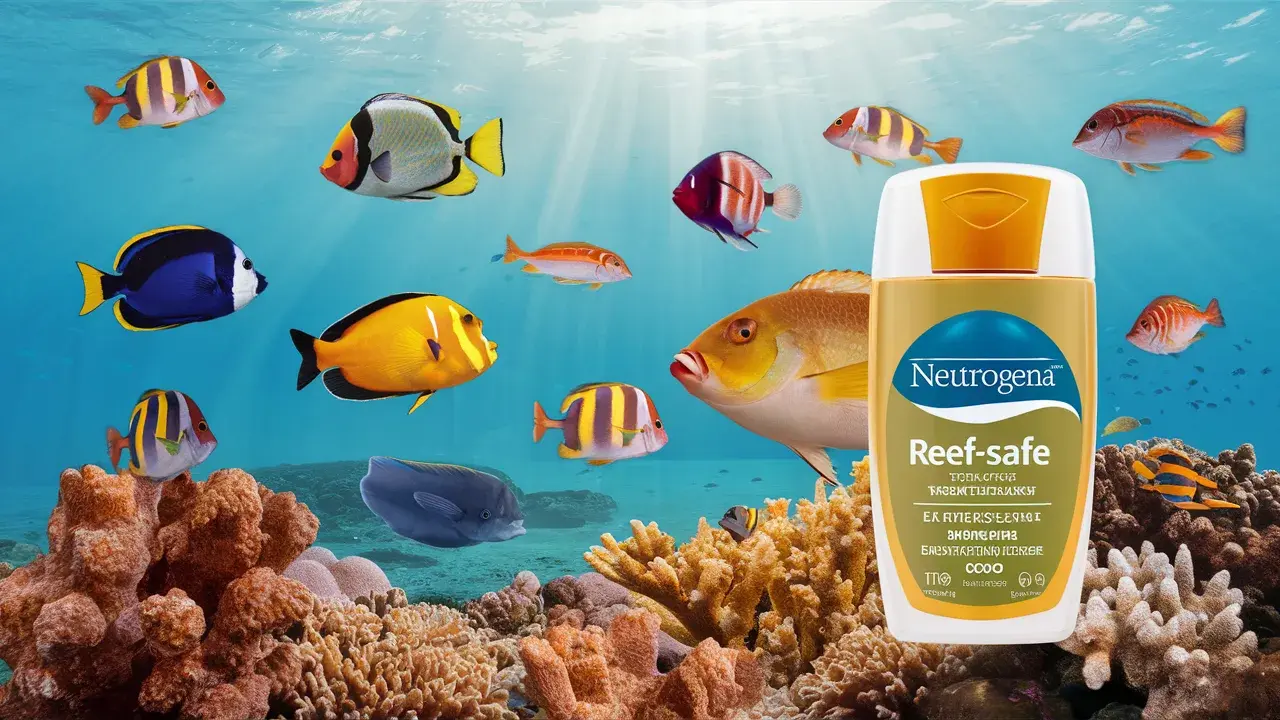As concerns about environmental impact continue to grow, many consumers are beginning to question the safety of their everyday products.
With the coral reefs facing a threat like never before, the issue of reef-safe sunscreen has become a hot topic in the skincare industry.
Neutrogena, a popular brand known for its extensive range of sunscreens, has also come under scrutiny for its impact on marine life.
The impact of sunscreen on coral reefs
Before determining if Neutrogena sunscreen is reef-safe, it is crucial to understand how common sunscreen ingredients can harm coral reefs.
Chemicals like oxybenzone and octinoxate, found in many sunscreens, have been shown to contribute to coral bleaching and coral reef deterioration.
These harmful ingredients can disrupt coral reproduction, growth, and can even lead to coral death.
By delving deeper into the effects of sunscreen on coral reefs, we can make informed choices about the products we use and their potential environmental impact.
Examining the ingredients in Neutrogena sunscreen
Now that we understand the detrimental effects of certain sunscreen ingredients on coral reefs, let’s investigate the specific components of Neutrogena sunscreen products.
By analyzing the ingredients list provided by Neutrogena, we can determine if their formulations contain oxybenzone, octinoxate, or any other harmful chemicals that pose a threat to marine ecosystems.
This crucial step will allow us to make an informed decision about whether Neutrogena sunscreen is truly reef-safe and environmentally friendly.
Research on the reef safety of Neutrogena sunscreen
To assess the reef safety of Neutrogena sunscreen, we have delved into scientific research studies and reports that investigate the impact of its ingredients on coral reefs.
By examining the data and findings from reputable sources, we aim to provide an evidence-based assessment of whether Neutrogena sunscreen products are truly safe for marine environments.
Our rigorous analysis will consider factors such as the chemical composition, biodegradability, and potential toxicity of these sunscreens to coral reefs.
Alternative reef-safe sunscreen options
While the assessment of Neutrogena sunscreen’s impact on coral reefs unfolds, it’s essential to explore alternative reef-safe sunscreen options.
Brands like Badger, All Good, and Raw Elements offer mineral-based sunscreens that are free from oxybenzone and octinoxate, known reef-harming chemicals.
These eco-friendly options provide effective sun protection without compromising marine ecosystems.
Look for sunscreens labeled as “reef-safe” or “biodegradable” to make a conscious choice in preserving our oceans.
Prioritizing reef-safe sunscreen not only safeguards marine life but also promotes sustainable practices for a healthier planet.
Conclusion
Opting for reef-safe sunscreen plays a crucial role in preserving our marine ecosystems.
While the debate on Neutrogena sunscreen’s reef safety continues, exploring alternative options like mineral-based sunscreens from brands such as Badger, All Good, and Raw Elements is a proactive step towards sustainable sun protection.
By choosing sunscreens labeled as “reef-safe” or “biodegradable,” you not only shield your skin from harmful UV rays but also contribute to the conservation of our oceans.
Let’s prioritize eco-conscious decisions and support brands that champion reef-friendly practices, ensuring a brighter future for our planet’s delicate underwater ecosystems.
Stay informed, stay sun-safe, and stay reef-conscious!

